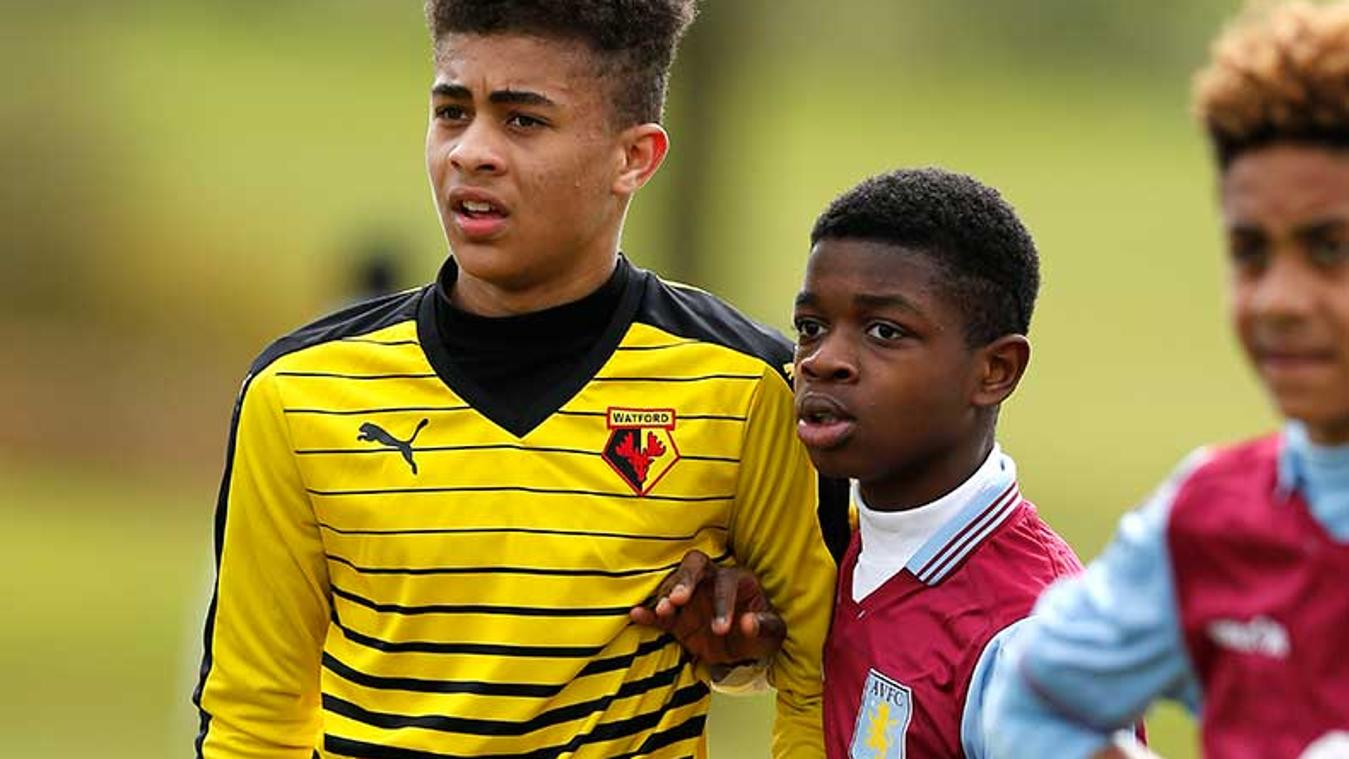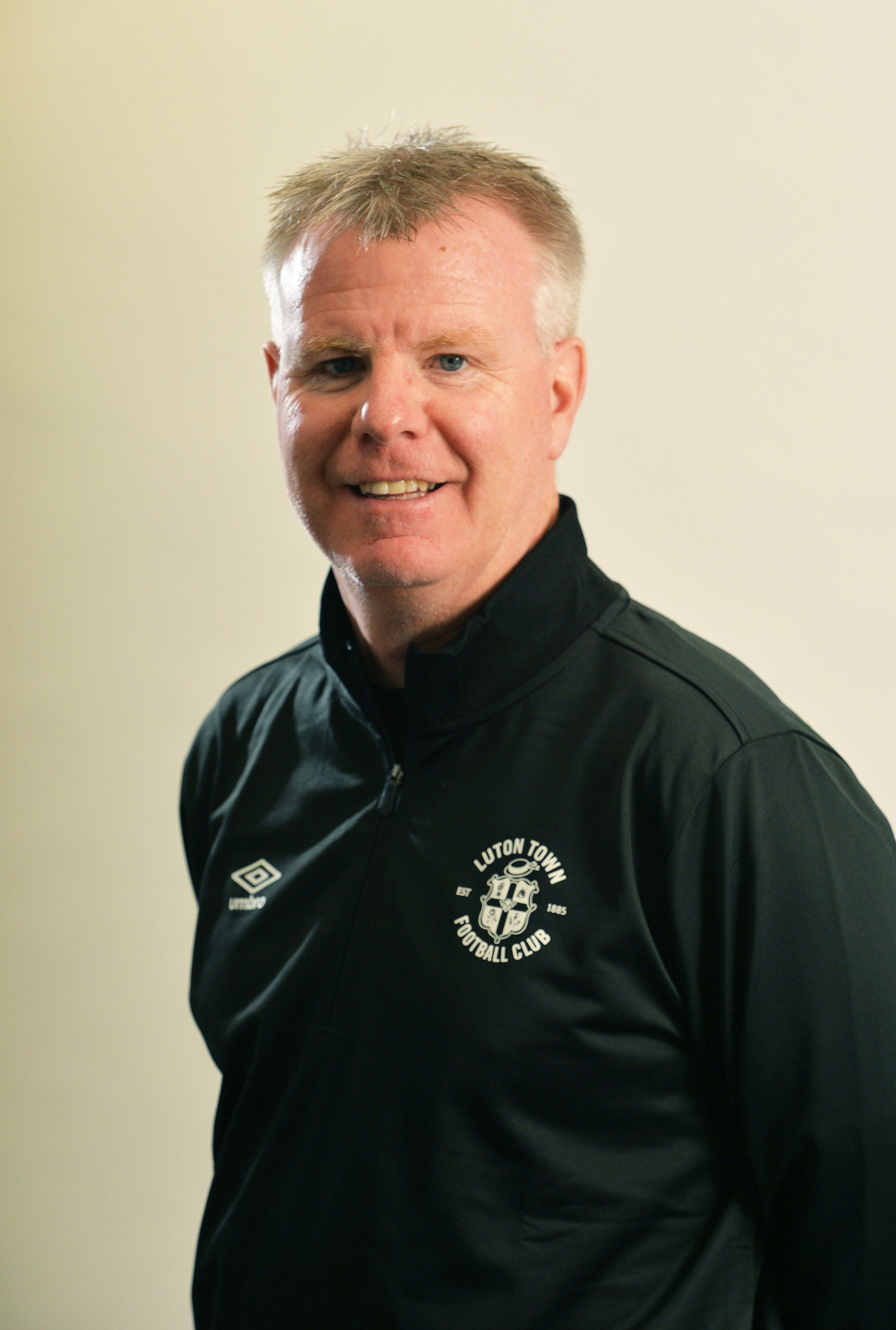News From the Football Academy World

"Good luck at your trial match today." Some might say to their child as they hope their teenage offspring has the game of their life and resurrects a football career having just been released from their former club. They may get lucky and somehow it all falls into place but the trial is a hostile environment to turn in a great performance. For starters, players are either all individuals being asked to play together for the first time or they may be one of three players shoehorned into an established team. Trialists do not know how everyone plays and many will fall into the mistake of showboating with the ball, rather than delivering what scouts and coaches want to see. Their rivals can all play or they wouldn’t have reached the level they have. The questions is how do trialists standout in the system that tends to drive showboating behaviour? We advise players not to leave a good performance to chance but instead develop a plan to succeed. Our list of top 8 planning tips to have the best trial possible 1) Desk review and research. Players should review and take a fresh look at their Player Development Reviews. It is surprising how the documents will make much more sense reading them again a few weeks later. Key pointers will leap off the page that didn’t sink it at the time of first reading. Next, players should try and find out about the academy staff who are likely to be judging them and work out what makes them tick? Where did they play? What is the club's football philosophy and look for their opinions in media interviews? If players can’t find it publicly, phone up the club and ask. Being intellectually curious shows a player's willingness to learn and go that extra mile to work hard and succeed. If players engage coaches in conversation and quote some of their points of view, trailists will look more serious about learning the trade. 2) Know what a good trial looks like in your own head. Players should have a performance plan in terms of productivity. What does "good" look and feel like? Players should think about how they conduct themself on arrival and what they can give the coaches and scouts to watch, score and tick off their checklist. In other words, how productive can players be - both on and off the ball? In one scouting report I read recently, there were 200+ data points that outlined a player's performance. Players should choose five or six performance targets and write them on their hand as reminder and tick them off in their head during the game. This ensures the core elements of their performance plan is delivered. 3) Ensure you provide an off and on the ball perfomance. However much time players spend on the pitch, bear in mind, 98% of their performance will be off the ball. In a typical 90-minute match, players generally have the ball at their feet for just 60-90 seconds . Let that sink in for a minute. Players have just 60-90 seconds on the ball to do something that differentiates them from other players . 4) Understand time and distance margins. The small margins of time and distance are the difference between getting a shot away and having it blocked. When players make a move, the best reaction time of an opposing player is 0.15 seconds; typically, average reaction times are slower at 0.2 seconds but bear in mind players are taught to identify and anticipate the other player's most likely direction of travel and pass. Therefore, if players can find an extra 44 cms of space before they are engaged or confronted by the opposition player, it is like having an extra 1 mph of speed to complete a move. 5) Creating advantage on the pitch. Everything players do on the pitch should be about creating advantage over the other side depending on what instructions are given by the coaches. Players create advantage by thinking and acting faster than the opponent (assuming it's the right decision). Players should think about where they should be on the pitch depending on their playing role. How often are they closing players down? Are they making successful tackles? Are they showing the attacking player down the line? Are they dominating an area on the pitch that prevents a passage of play? In attack; are they running into advantageous space to receive the ball? Are they running off the ball in attack mode and taking a player with them to open up space behind or next to them? How well are they communicating with other players? 6) Engage coaches in conversation ...and ask questions to demonstrate a level of confidence and maturity that may not be evident in others players. This indicates a player's willingness to learn and positions them as person who could easily fit in to the team and has a passion for learning? Put yourself in shoes of a coach. Who would you rather teach? A know-it-all or someone who is intellectually curious? Coaches want to pass on the knowledge they have accumulated and see it used by a young player with potential and see them turn professional. 7) Physically prepare. Players should ensure they are match fit, have slept well, eaten sensibly and are properly hydrated. 8) Arrive in plenty of time. Don’t arrive on time but be at least 15-30 minutes early. This reduces stress and allows the player to stay focused on the task ahead; especially if the journey is 100 miles plus. If having read this, you think this is a bit over the top or the work of a "try hard" just look at the profesionalism of athletes, swimmers, cyclists and racing car drivers. They all strive to create marginal improvments in every aspect of their performance. This is what marks out those that succeed and those that fail in this ever so competive world of sport.

Retained! Well, we have just had the U16 retain-release chat with our club. A verbal and written offer to retain our son has been made. But let’s go back to when our son was nine years old when he moved from the development squad. At the parents meeting, we were terribly excited about are child being taken into the academy but we were given a reality check by the head of child welfare and education. He spelt out the probability of children going on to make it as a professional footballer was very small. He said our first priority should be to maintain a focus on education. In fact, our priorities should be family and friends, education and football – in that order. This has been said repeatedly every year at every parents meeting. No matter how often we were reminded about the likely outcome, as a parent you always approach every retain/release decision point with a mixed sense of hope and apprehension, knowing this may be the moment you have to help your son manage disappointment and motivate them to remain focused on school work. Now back to the present time and we have concluded two Zoom meetings and a separate phone call with the club over the past week and half. One of the meetings was attended by four members of staff which is no mean feat considering some of the club’s staff had been furloughed. Much of the meeting time was focused on education during the club’s apprenticeship scheme and the welfare of our son, when he moves into digs with another family. We had prepared 22 questions that we sent to the club in advance of the meeting that were all addressed. This gave the club plenty of time to formulate detailed answers in time for the meeting. Once again it was pointed out by the club that the odds of making it through to playing at first team level are small and we were asked to continue to plan for life outside of the club in the short-term but also life after a playing career. Don’t for one minute think all the upsides weren’t laid out before us - they were. The club has a strong history of taking players into the first team but I’d say the pitch to us was definitely balanced with reality. The academy manager said, he’s often accused of being negative. I’d say he’s been honest and transparent with parents and their children which in my opinion is the right thing to do. In conclusion I’d say this is the benchmark all clubs should aspire to reach and it’s one of the main reasons we bought into this academy at a time when others were interested in our son. The club’s proposition to parents right at the beginning of the academy journey was rather modest and admitted they didn’t have a dome and multiple 3G pitches but what they had was approachable, dedicated staff. A coaching team who engaged and worked with parents. This seems to be a far cry from stories told by parents of children who arrived from Category 1 academies. They described their experience of Category 1 coaching staff as being distant, if not aloof at times. This may be the result of a coaches own individual mannerisms not necessarily club policy and culture. The main difference, I’ve observed between the different academy systems, is the sheer volume of children being processed through the system at any one time which must inherently lend itself to a more direct style of communication between the club and parents. There simply isn’t the time to hand hold parents. We found the day-to-day coaches at a Category 1 club (at development level) to be very approachable and readily gave feedback on progress but the guys who actually make the decisions and communicate them to parents position themselves at arm’s length, so this might explain the dissatisfaction. Of course, all the while you are still on the academy journey, none of this matters too much. It tends to become more of an issue if you are pointed towards the exit door, which is fair enough because we are just humans trying to manage our emotions.

This Year May Different to Past and Future Years 2021 will be an interesting year. The impact of Brexit means that Premier League clubs are no longer able to import under 18 players into the UK. And with Covid-19 closing so many borders, bringing in players further afield than the EU will be challenging. Domestically speaking, many academies are operating with a small core of staff, the remainder are furloughed. This means most matches have been cancelled and scouting activity has slowed right down. In theory, there may be fewer players departing Category One clubs but the gaps created by those that have left may well stimulate a frenzy of clubs looking for lower league bargains to be snapped up and for lower leagues to retain more of their players or make offers to players in other lower league clubs to fill their ranks. Overall, there may be fewer players released and fewer players without football homes to go to by the time the new season arrives. Treasure the Positives But i f you have been released from the club, you should hold your head up high and be very proud of what you have achieved in football. You have excelled in your passion, one of the few to have played at the highest levels in youth football. This says a lot about your strength of character. Look back on all those assessments you had every six weeks when you listened to the positives and negatives of your performance, how you reacted and developed your football and thinking skills. If you started in the development squad, you have had more performance assessments than most adults will have in their entire working career - and you passed them all bar your final one. You leave your club a far better person and with bags of kudos and respect from family and friends. What did I do wrong? Maybe nothing at all. From the club’s perspective they have been looking at the players in the age groups ahead of you and behind you; working out who has the greatest potential to turn professional. If you have an international player in your position, in the age group above, it's just bad luck. Any other time and you might have made it. However, sometimes you must be honest with yourself and accept that you have reached your level in football. Football decisions are increasingly less about just one coach's opinion and whim. Decisions are increasingly data driven but you can never rule out a clash of personalities or even personal dislikes. Everybody is human and capable of making decisions based on feelings rather than evidence as indicated by the Myers Briggs personality trait test. You should also remember, that like music, football decisions even with data, are in the end opinions which can be wrong. How many artists and players have initially been turned down but go on to achieve great success. Work out what you do next? If it's not football, just think what you could achieve if you applied the same amount of passion and effort to your next career option. Savour the time you had in football, remember the famous people you met, the exclusive facilities that you played at and know that in the future, you’ll be able to replay many stories over dinner about how you nutmegged some of your former, soon to be famous, opponents. Leaving academy football opens a large gap in your life. You owe it to yourself to maximise your career options and focus on the remaining time left at school. Study hard to make up for the time you sacrificed going to day-release football and training during the evenings and at the weekends. If you keep your options open, you can pursue careers in the professions, investment banking, hedge fund management or become a partner in a legal, accounting and management consulting businesses to name a few options. This is the other way you can access the sort of trappings that football provides. Whatever you do? Don’t fall into the arms of drugs and drug dealer school friends to get that fix of excitement and respect. It’s a short-term fix and leads to waste and tragedy. You are better than that. Add your football experience to your CV Add your football experience to your career CV. In every single way, you were all but employed by the football club. The only thing that was missing was pay. You signed a contract with a famous if not a well-known brand. You followed their rules and complied with their values. You were assessed every 6 weeks. You developed extremely valuable soft skills which are so often lacking in business today. Include your soft skills These include working as a team, working hard, strong verbal communications, positive thinking, overcoming adversity, applying tactics and following a strategy. For some, playing in an academy may have enabled you to achieve scholarship status at your school. These are all things that can out-point a straightforward academic candidate who did nothing but study with all the time they had available to them. Businesses need well rounded bright individuals that have the energy and drive to make a difference to their results. Something you know all too well. But I still want to play football If you have honestly assessed your own strengths and weaknesses and not the desire of pushy parents and you still believe you still you have what it takes, approach other clubs for a trial. Don’t spin them a hard luck tale. All clubs have access to the PMA database, so they can look up your details and reports and see the things that might not have been visible or said to you whilst at your former club. You might want to consider asking for all the data the club holds about you to see if the answer the club gave for your release is genuine or was there another reason? General Data Protection Regulations and UK Information Act affords you this opportunity. You may have to pay a nominal fee of say £20. The club will need to supply this information quickly in say two weeks of asking and paying the fee. Legally this can take up to one month or if the request is complex to deliver; three months at the latest. The club does not have to supply data that it legally considers to be management planning. USA soccer calling Assuming international borders open up to some extent within the next 12 months, another way to pursue a football career is through the university divisions which can be the pathway to Major League Soccer which many regard as the up-and-coming sport to rival American Football and Baseball. A decent football CV has the power to access scholarship opportunities. USA universities are very expensive to attend. Free scholarship places are much sort after, and this is where you must be careful. Sports consultancies offer, for a considerable fee of £1,500 - £2,000+ to help you apply and obtain the maximum discounts on offer ahead of other applicants. We urge you to look carefully at the end costs. Sports such as baseball, basketball, Lacrosse, and American football certainly do offer free places. We found scholarships for soccer to be less generous with fees eventually rounding out to be the same as UK university fees of £9,000+ per year. This is not necessarily to be sniffed at as you will find USA tuition fees without discounts are around $50,000 per year. £2,000 spent with a consultancy could net a $40,000 discount but make sure you factor in accommodation, travel, healthcare, insurance and flights too. And remember you may not have quite the same fresher experience as the in the UK. Alcohol purchases are restricted to 21 years and above in the USA. For more information on football academies keep an eye out for an upcoming feature on BBC 1’s One Show. All that’s left to say is... the very best of luck to you. Go forward and succeed?

As professional footballers go, Andy Awford is a firm fans favourite and widely respected as a former player and manager. In more recent times he has established himself as a successful academy manager at a Championship club, Luton Town FC, where we caught up with him over Zoom on his day off. This tells you all you need to know about his work ethic; not only doing interview duties but also wading his way through the latest official guidance about managing the Covid-19 risk for the academy. Andy, what’s the future of the football academy system and is the Elite Player Performance Plan working for the industry and the club? “Overall, it’s been a good thing and helped to bring a clear criteria, structure and requirements that clubs need to achieve. It has improved resources, the quality of pitches and facilities. It’s evolving and improving yearly, even monthly, and in my opinion for the better, so long as it continues to do that for the benefit of all academies regardless of category status. Yes, you could pick it apart and say this needs to change and that could be better but it’s a definite improvement from the first iteration. Take the audit process. In my opinion it wasn’t great to start with. It was far too regimented; it didn’t allow clubs to be experimental at times. Now there is a new process that facilitates a degree of flexibility. Yes, you need to meet your safeguarding and compliance aspects to achieve the standard, but the programme of work can be adapted to better suit the needs of the club. As for the future, we are waiting to see what the impact of Brexit will be and how that might affect players from abroad joining the club but everyone is constantly looking to see how you can improve your club. Right now we have an application submitted, which requires huge investment to move from category three to two. It’s a big change for the club, for our staff and parents to get used to. If you speak to fellow academy managers at the top of the Premier League or those down at League Two, they are all trying to improve all the time and all trying to find that diamond of a player that breaks into the first team or one that can be sold for millions to improve the finances of the club and fund the academy for the next few years. What I do see and hope to see more of is collaboration across the community of football academies which has been brilliant in recent times. More clubs are now willing to share ideas and options generally when academy managers do get together, more often on Zoom these days, to discuss issues as a whole or in groups and, we come up with ideas that we take back to the clubs to get buy in. Not everything is shared as some matters are private to Luton Town but as an academy you are always looking and always learning how to improve and it's this curiosity which helps the academy system to continue to improve.” How is the academy system delivering value to clubs as opposed to buying in players? "The context of the question is based upon the return-on-investment gamble that clubs take every time they spend millions, if not tens of millions of pounds, on players who may or may not live up to performance expectations." Awford draws upon his own experience as a first team manager. “It’s difficult as a manager. Not all, but most first team managers recognise they are probably just 10 games away from getting the sack. Whilst it's great to have “one of your own” make the first team, you are usually up against time. Some clubs want a quick a fix, others are happy to wait. It’s an economic, balancing act where you draw upon the mix of players you can afford from players bought in, loan players and academy graduates. It has been great to watch the progress of one of our academy graduates, James Justin, who made the first team. He has been with Luton Town since the age of eight. Justin was recently sold to Leicester FC for an undisclosed fee and was also named in the England U21 squad. If we can get one of those through every so many years, that makes it all worthwhile for everybody at the club; from the U7s manager to the first team coach and the Chief Executive. It is recognised that we are not going to get every single player through the system, of course we are not, so therefore certain players have to be brought in at first team level. In terms of value, it goes much deeper than putting players into the first team. I would also stretch this to the value we put into the local community around the club and the whole town of Luton and ensuring the club is firmly embedded into it.” What type of player are clubs trying to produce and how do they differ from 10 years ago? “At Luton, where we have gone through the leagues very quickly, when I first started we were a division two club having just come out of the conference, so we are now a Championship club and this is our second year, so we are now trying to be an established Championship club. If you forget the physical aspects for a moment, it doesn’t take a genius to work out that between the Premier League and League Two, there is a level isn't there, a standard of player. That’s no disrespect to players playing at any level. Trying to get a player on the pitch in League Two is one thing. Trying to get a player on the pitch in the Championship, Premiership and the Champions League is a totally different thing as well. It will be different from club to club too. We try to do it our way. For me it's no good trying to get our boys to play like anyone else, it has to be our way. We’ve got to produce players for Luton because we play a certain way; there is a certain culture and a certain environment and certain attributes needed to go and play at Kenilworth Road. So, we have to give players every opportunity to thrive and drive towards that. The game itself is far quicker than it was 10-12 years ago. Players run faster; players run for longer. The stats will tell you that. Sports science is now more prevalent than ever, providing data for managers, coaches and physios to backup what our eyes tell us. Eyes tell no lies; they tell me if a player runs around or not, we are not dependent on data; it’s part of the decision-making mix. Each club has its own way of doing things which is determined by its football philosophy with input from the first team manager and their coaching staff. The challenge is to set the requirements and ensure it’s aligned all the way through the age groups and coaching staff otherwise it creates confusion amongst players. We are trying to achieve that. Is there a broad player profile that fits a professional club’s requirements? “We have player profiles at our club and our recruitment is based on them. If I take a full-back for example, we might have a requirement of 10 attributes in 10 areas. With respect, those players who score 10 out of 10 probably won’t be in category 2 or 3 academies they will already be at Tottenham, Arsenal or Chelsea aged 14. But if a young U14 player here has 8 out 10 them, we’ll give them a right good go. I don’t think player profiles are standard across all clubs. All our players are technically very good and as they mature, they develop their tactical awareness. Physically you just don’t know. It is difficult to tell. We do the tests and maturation, and you can look at the parents standing on the side-line, but you just don’t know for certain how they will turn out. We have late developers and we have some right big monsters within the same age group. There isn't one standard type of player. The one thing all academies want is great players! That is pretty standard. But you can't get the finished article aged 10, 11 and 12, you’ve got to add on the layers as they go through the system.” Academy matches – How are teams playing? What is the style of football they aspire to? Is it Tiki Taka, direct or something else? “Personally, for me, winning does matter. I hear the phrase in academy football that ‘winning doesn’t matter.’ Well, it does to me. If it doesn’t matter, don’t count the goals, don’t have a referee. The first thing that gets asked at school on Monday after he has played for us is, ‘What was the score?’ So, it does matter, they want to win. However, you have to have a balance. If you don’t win but your best player makes it into the first team, that’s the academy winning isn't it? Before the start of every game, we want to win. From the U7s to the U21s you will never hear a coach say, we aren't bothered about winning today. Of course, we are. The style thing is about each club having its own football philosophy - a style of play and coaching philosophy, and they will vary from club to club and each must choose the manager and coaches accordingly. Let's say my style is to play and play and play and then you put me into another club that wasn’t bothered about that style, it would cause confusion. It has to be consistent right the way through the age groups, so when players go onto the pitch they know exactly what is expected of them. Whatever style you choose, the coaches have to buy into that and execute the club philosophy and style. Coaches can't teach their own football philosophy. We are not perfect at Luton but we do seem to have that established quite well as some of the staff have been here for quite a while and they know what to deliver. But that takes time, it's not something that is just thrown together quickly." Data and Analytics, how influential is it? How is it helping you now? “It's there now, it would be wrong not to use it. You could throw me a player name in the Austrian Premier League and our data team could go and find data on him. It would be wrong not to use it but I still like to go and watch players play. You get more of a smell and a taste of it. I like to watch them warm up, watch the game, get a bit of research on him as a person. You can have all the data and numbers on him such as, how he passes forward, how far they’ve run, how many minutes he has played etc which is great, but I personally wouldn’t want to sign him on just data. I prefer to watch, have them in, if circumstances allow, and do it that way but data can be used positively. We have in the past recruited players without data when we had less resources but now we have made massive progress. We are different from where we were seven years ago but just suppose our academy scouts spotted an under 18 lad at a local club on our doorstep. We would go and watch, watch, watch and if we decided to bring him in and trial him and he does really well and we did all our research on him and got the okay from technical staff, I would still ask the powers that be, if we could sign him? However, if it was a Tottenham player about to be released, the data would all be there. We would be foolish not to use data because you might find something that changes your decision.” The elephant in the room is Covid-19, how is that impacting academy football? “It's different. So different. We went into lockdown in March. We returned our 18-21s to training in July and schoolboys started to train again in September on a reduced programme. At Luton our training ground is compact and close which is brilliant but now we have to train much further apart. We have to stay in different bubbles. I don’t go near the first team building at the moment, I'm not allowed to. That’s just common sense. No parents are allowed in to watch their children train or watch matches at our facilities and when we travel, we have to comply with other club rules which is typically based on a large document and the same applies when teams visit us. Age groups remain in their bubbles, staff can't change to other age group bubbles and we have had to stop playing players up in other age groups at a time when, ideally, we need to stretch them, improve them and test them. We have the daily questionnaire and temperature testing to spot and minimise the risk of Covid transmission. All this has been done so we can put on a games programme. This is something the pro-licence training doesn’t teach you, so we are implementing the latest guidelines and learning as we go. It’s occasionally nice to have a football conversation instead of one about Covid-19 but we have to apply the rules strictly and take this pandemic seriously. I make no apology for that; we are responsible for the safety of more than 140+ kids and their families whilst they are in with us.” If we lockdown again, how will you make decisions about players as we near the end of the year? It's an important time for the U16s? “Well, we will do what we did last time as we approached the end of last season for other age groups. We still had to make decisions. Some decisions were already made on some boys in all honesty, so some were carried through. All clubs were offered the chance to extend contracts when the return happened whether the boys were 9 years old or 18 years old, so we did that on a few. We have been in communication with the League and the FA to extend contracts where we feel players haven't had enough time because of the conditions we have been working under as result of Covid –19. Decision time for the U16s is normally December 31st but because of Covid-19, we have been given the opportunity to extend this to March 1st. The yes decisions are the easy ones, and the no’s are difficult at the best of times, but decisions have to be made because the boys will be taking exams and leaving school soon. But we do all we can with the football authorities to give the boys as much football time possible under the circumstances we find ourselves operating under.” Many thanks to Andy Awford and Luton Town FC for the interview. If you are a football academy professional we would love to interview you too. See our contact form page and register your interest.

How much time can be wasted trying to practice tactics or shots when tiredness, fatigue, injury and mistakes mean having to retake that shot or passes time after time. Ball Launcher can solve that problem. From car to launching the first ball takes just 2 minutes. It can launch 200 balls in an hour at speeds set by you from 5-80mph and you can apply all types of spin or even a Knuckleball. The outomes is the ability to develop players faster and shorten training routines so that you can move on quickly to the next area of skill development. For more information view the impresive clips at: https://www.ball-launcher.com/media-zone-i36 https://www.facebook.com/BallLauncherOfficial/videos/2962241963795766/?t=7






